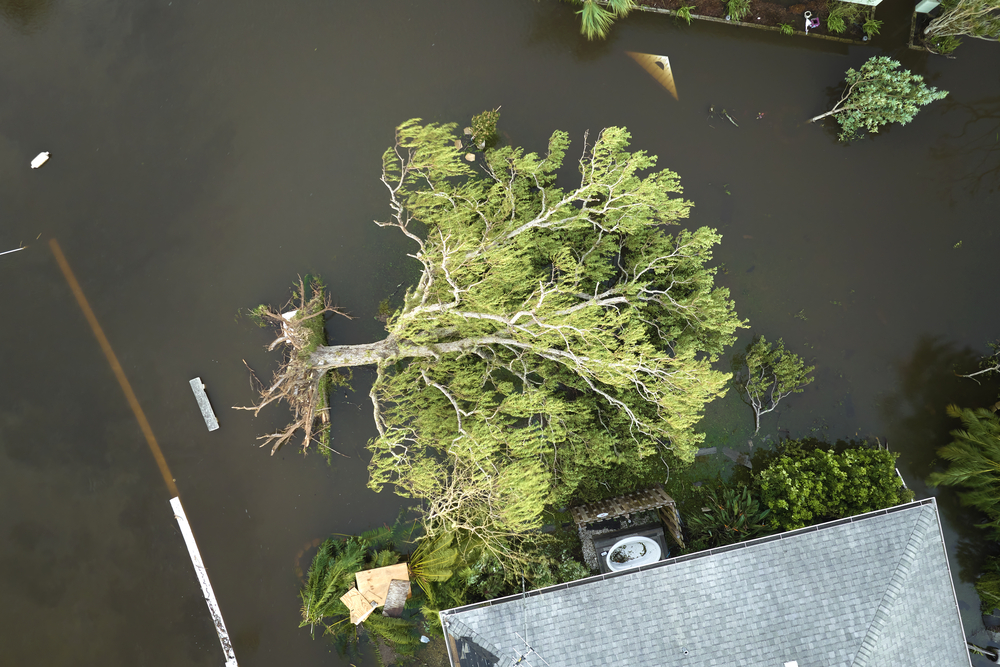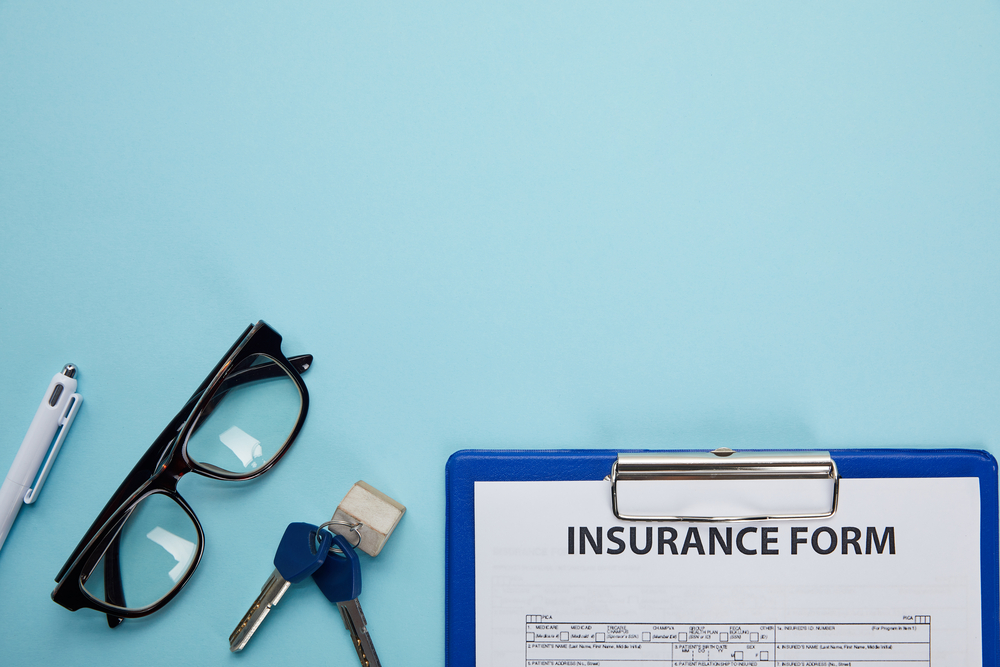5 Ways Landlord Home Insurance Is Different From Regular Home Insurance
While you may have regular homeowner’s insurance for your home, that will not be enough protection should you decide to rent out your property to tenants. Unlike homeowner’s insurance, landlord home insurance is designed specifically to protect you from financial losses and liability. These two insurance types have some similarities, but the application of the coverages included differ greatly.
Consequences of Not Being Properly Insured
If you are not properly insured, any number of things could occur that could negatively affect you as a landlord:
- Loss of rental income
- Unexpected expenses from fire or weather damages
- Unexpected expenses from building code violations
- Legal action from tenants resulting in legal fees and possible settlement payments
Protect yourself and your property by learning about the differences in insurance policies so you will be able to make an informed decision when it comes time to rent out your property.
5 Ways Landlord Home Insurance Is Different From Regular Home Insurance
1. Property Protection
One of the main differences between the two insurance policies is what is included in property protection. This would include the dwelling, other structures (like a garage), and personal property used to service the rental. The main differences revolve around the dwelling and personal property protections.
Dwelling
The dwelling refers to the property itself—like a condo, apartment, or home. It is important to point out that this type of insurance is only applicable to “non-owner-occupied” property. If you live in the same property you rent out, you are likely not eligible for this insurance. Dwelling coverage includes protection from damage by certain perils like weather, fire, and theft and helps you make repairs without additional costs.
Personal Property
Your personal property, such as a leaf blower, would be covered if you use it specifically for the rented property. If you have older appliances in your rental property, this is especially useful since those appliances will inevitably need to be replaced or repaired. This excludes other personal property that is not used to maintain the property.
Note that since there is less risk of your personal property being damaged, the coverage is pretty limited. Homeowner’s insurance, on the other hand, usually covers all personal property up to 50% of the home’s insured value.
Because your insurance policy will not cover your tenant’s personal property, it is a smart idea to require any tenants to have their own renter’s insurance in case their property is damaged. This way you can avoid the hassle of determining who is responsible for recovering and replacing lost or damaged property. When you are both insured, you will have peace of mind knowing everyone involved is properly covered.
2. Loss-of-Use vs Loss-of-Rent
In a typical homeowner’s insurance policy, loss-of-use is included as a protection against certain causes that force you out of your home, like a natural disaster or mold infestation. It will cover your hotel expenses and other living expenses until your home is habitable again.
If you are renting out your property, this coverage does not necessarily apply to you since you are not living there. Instead, your insurance will cover loss-of-rent, also called fair rental value, where you will be reimbursed for any lost rental income if your property becomes uninhabitable due to a covered cause.
Fair Rental Value
The fair rental value is the value used to determine how much your rental property is worth. Loss-of-rent coverage is applied only for the amount of time necessary to make your property habitable again, usually up to 12 months. Additionally, expenses like electricity that would usually be included in rental income are subtracted from this coverage if the expenses stop while your property is uninhabitable.
This coverage is intended to help maintain your income so you are able to continue making important payments such as your mortgage and repair costs. Also, you will probably be more willing to make speedy repairs when you know your income will still be covered, which will lead to more potential tenants.
3. Liability
As a landlord, liability coverage is probably the most important part of your insurance policy. Homeowner’s insurance will usually be lower in price when it comes to premiums and deductibles since there is less risk involved.
When you rent out your property to tenants, you take on more risk, whether that be in the form of injury or damages to property. Expect to pay 25% more for liability coverage in your landlord home insurance policy than a homeowner’s insurance policy.
Types of Lawsuits Covered
Liability coverage will protect you from extra expenses should someone on your property injure themselves or have their property damaged and sue you. This typically covers three types of lawsuits:
- Injuries incurred by a tenant due to alleged landlord negligence (broken stairs, icy driveway, etc.)
- Damage to a tenant’s personal property from certain circumstances, like a broken pipe causing flooding
- Character defamation-type lawsuits (note: most insurance companies do not cover discrimination or wrongful eviction lawsuits under this coverage)
How much you pay in terms of liability deductibles and premiums can also vary depending on how long you rent out your property. Short-term rentals pose more of a risk than long-term rentals since renters are presumably not as invested in the rental property as someone who is renting for 12 months. If you want to avoid high-risk tenants and high premiums, keep that in mind when deciding how long you should rent out your property and what policy to choose.
4. Additional Coverages
There are several other coverages that can be added to a landlord home insurance policy that regular homeowner’s insurance does not have. These coverages apply to landlord-specific circumstances and are not necessarily included in an average plan. They are optional but add more protection in higher-risk situations that will ultimately protect your property and your tenants.
Guaranteed Income Insurance
It is exactly what it sounds like—you are guaranteed rental income in the case that your tenant cannot pay all or part of their rent that month, for whatever reason. This might be a good option to add to your policy depending on your situation or if you just want the extra protection. It is important to note that this is different than loss-of-rent insurance.
Flood Insurance
The majority of home insurance policies, both regular and landlord, do not include flood insurance. Therefore, it is a good idea to add this if your property is in a flood zone or in an area prone to flooding. Flood insurance is often overlooked but it can be devastating for both you and your tenant if you do not have it. Consider adding this to your insurance and avoid the risk.
Vandalism
Damage by vandalism is not typically covered in an insurance policy, so if you need to make repairs from vandalism, you will likely pay out of pocket. It might be beneficial for you to add this coverage if your property is at risk of vandalism based on its location or other factors.
Construction Expenses
In the case that you need to make repairs on your property and find that certain structures or wiring are not up to current building codes, you could be required to make additional repairs in order to resume renting. This coverage will help cover the extra unexpected costs and you can rest easy knowing your property is up to date and safe to live in. Your tenants will surely by grateful as well to have a safe living environment.
5. Higher Costs
As mentioned before, landlord home insurance will be higher in cost than homeowner’s insurance due to the higher risk of taking on tenants. Renting out your property involves more risk for the insurance company, but especially you as the landlord since you will be responsible for your tenants and their safety.
Tenants are also less likely to report maintenance problems since they may not be as familiar with the property and because they do not own the property.
A basic policy will include dwelling coverage, which was discussed earlier. There are three types of this coverage, each varying in cost and the coverage amount. DP-1, DP-2, and DP-3 are all known as dwelling fire policies because they cover the typical big risks like fire, weather, and theft.
DP-1
These policies are going to have the most basic coverage and therefore the cheapest option. Be warned, however, as these policies are fairly limited in what they cover and any damages will be covered by actual cash value, rather than replacement cost value. This means that if you need to repair part of your property or rebuild the entire thing, you will only receive the depreciated value of the property.
DP-2
These are usually a better option than DP-1 since they cover more and have replacement cost value. Instead of actual cash value, you will be reimbursed for the entire value of the property, including depreciation. This could potentially save you thousands of dollars in repairs.
DP-2s also include loss-of-rent coverage, which was also discussed before. With more protection and better coverage comes higher costs, but these are a good middle-of-the-road option.
DP-3
These policies have the most coverage and are also the most common choice for landlords. They will cover all perils except for the ones listed in the policy, whereas DP-1 policies only cover a handful of specific perils. Like DP-2s, they usually include loss-of-rent coverage.
Higher Premiums
The numbers vary some, but you can expect to pay 15-20% more for your policy than a regular homeowner’s insurance policy. An average annual premium might be $986 a year, while an average homeowner’s insurance premium would be $822 a year.
Depending on what your policy includes, you could add an extra $50 a year for coverages like loss-of-rent. The price is affected by how long your rental terms are, how much your property is worth, and how much coverage you want or need.
Some insurance companies offer umbrella policies which might be a good idea for you if you have multiple properties to insure. These policies will offer extra liability protection across all of your properties and the yearly premiums can range from $200 to $300.
Final Thoughts
To wrap up, landlord home insurance and regular homeowner’s insurance are different in both their coverages and their applications of those coverages. Personal property for landlord home insurance only applies to the dwelling itself and any personal property of the landlord used to maintain the property, whereas regular homeowner insurance covers all personal property. Homeowners will receive loss-of-use reimbursements, while landlords will receive loss-of-rent reimbursements.
Additionally, landlords will pay about 25% more in liability coverage than regular homeowners due to the higher risk. There are also optional landlord-specific coverages, like guaranteed income insurance, that homeowner’s insurance does not have.
Get a Free Insurance Quote
Despite the higher risks and higher costs, it is a great idea to get properly insured if you plan to rent out your property. You don’t want to get stuck with your tenant’s medical bills or expensive repairs that will only cause you stress and worry. Hopefully, the reasons discussed above will help you make the right decision for your insurance needs.
You should ask your insurance agent about bundling options that can save you money on deductibles and premiums. For example, you can apply for homeowner’s insurance for your own home and landlord home insurance for your rental property. Consider also asking your agent about optional coverages like flood insurance or guaranteed rental income to increase your protection.
Contact Absolute Choice Insurance today to learn about your insurance options, they have agents ready to assist you in choosing the right policy for your needs. Should you decide to rent out your property, you will have peace of mind knowing you are fully protected with Absolute Choice.



